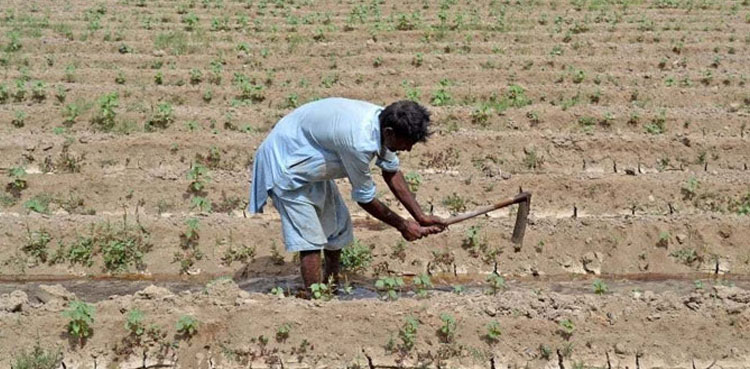ISLAMABAD: The federal government has formed a high-level task-force to address worsening water scarcity and its impact on Pakistan’s critical Rabi and Kharif crops, ARY News reported.
The body, co-chaired by Federal Minister for Climate Change Dr. Musadik Malik and Federal Minister for Water Resources Muhammad Moeen Wattoo, held its first meeting in Islamabad on Thursday to outline urgent measures.
The task-force discussed strategies including rainwater harvesting, reducing water wastage, and pilot programs for drought-hit farmers. International donor engagement was also highlighted as vital for long-term solutions.
“Our core objective is to develop practical, forward-looking measures to counter both current and future water shortages,” said Dr. Malik.
He stressed the need to monitor domestic and cross-border water flows, warning that regional uncertainties could disrupt supplies.
Ministers reviewed agricultural and household water demand, causes of recurring shortages, and annual availability fluctuations. The task-force was instructed to analyze 40 years of hydrological data to identify trends and guide policy.
“Understanding historical patterns is essential to mitigate risks,” noted Malik, emphasizing preparedness for potential cross-border flow disruptions.
Read More: India suspends Indus Waters Treaty, closes borders with Pakistan
Water scarcity poses a severe threat to Pakistan’s food security and economy, with agriculture accounting for 90% of freshwater use. The task-force’s findings could shape national water conservation and climate adaptation strategies.
Earlier, President World Bank said that there is no clause in the Indus Water Treaty (IWT) to hold the agreement in abeyance or suspend it by one party of the treaty.
In an interview with CNBC, WB President Ajay Banga, however, said that the water treaty may be suspended or amended as per the consent of the parties concerned. He said the World Bank is the broker of the Indus Water Treaty.
The experts have said that the interview of the President of the World Bank is a proof that India cannot hold the Indus Water Treaty in abeyance unilaterally. “One-sided suspension of the treaty IWT has been grave violation of the international law,” according to experts.
They further said that clear stance of the World Bank about Indus Water Treaty has exposed India’s nefarious designs.
It is pertinent to mention here that India had announced to hold the Indus Water Treaty in abeyance unilaterally following Pahalgam incident in Occupied Kashmir.


Leave a Comment